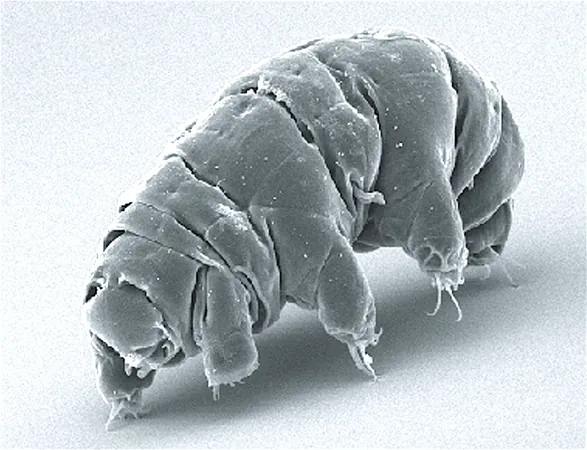
Urgent Health and Safety Tips Following Ice Storm in Peterborough
2025-03-31
Author: Benjamin
As Peterborough continues to recover from a devastating ice storm that left thousands without power, public health officials are issuing critical guidelines to help residents avoid foodborne and waterborne illnesses in the aftermath.
Following the storm, which struck on March 30, 2025, many residents are facing prolonged power outages and debris cleanup that presents significant health risks. Here are key safety precautions everyone should follow:
Food Safety Recommendations
During power outages, it is vital to keep refrigerators and freezers closed to maintain safe food temperatures. A closed refrigerator typically keeps food at a safe temperature (4°C or 40°F) for about four hours. However, perishable items, including dairy and deli meats, must be discarded if they have been above 4°C for more than 2 hours. Freezers can keep food frozen for 1-2 days, but any items that have thawed for more than 2 hours should also be discarded. If items are only partially thawed, they may be refrozen, although quality may be affected.
To keep hazardous food items cool during outages, residents are advised to transfer them to coolers packed with ice, ensuring that the temperature remains at or below 4°C.
Water Safety Measures
For those relying on private wells and septic systems, the storm's impact on power supply can disrupt water treatment and pumping systems. It is essential to use bottled water for all consumption activities until the power is restored and systems can be checked. After power is back on, residents should flush plumbing systems and test water quality to ensure safety.
If your water pump has failed, seek alternative water sources until power is restored. Residents are urged to limit water use to prevent septic tank overflow, especially if sewage cannot be effectively pumped away.
Pool and Hot Tub Guidelines
With many pool and hot tub recirculation systems offline due to power outages, the health department advises against swimming until water quality can be verified and systems are operating properly. Cloudy water is a major concern, as it can harbor harmful pathogens and lead to waterborne illnesses.
General Safety Tips During Outages
Cooking Safety: Avoid using indoor equipment that exposes you to carbon monoxide, and ensure proper ventilation when using gas stoves.
Generator Use: Portable generators must be used outdoors and never inside homes to prevent deadly carbon monoxide buildup.
Driving Precautions: Be cautious when driving in the wake of the storm, as many traffic signals may be non-operational, and fallen branches can create hazards.
Stay Warm: The City of Peterborough has set up warming centers that will be open until 8 p.m. on March 31 to accommodate residents without heat.
Flood Risks and Cleanup
Residents are also cautioned against the dangers posed by potential flooding. Standing water can lead to mold growth and health risks from bacteria. If flooding occurs, it’s important to distinguish between clean and contaminated water, and to take necessary safety actions which include wearing protective gear while cleaning up.
For additional support, Peterborough Public Health is available at 705-743-1000 for those in desperate need of guidance, and more detailed information can be found on their official website.
By adhering to these guidelines and remaining vigilant, residents can minimize health risks while navigating the aftermath of this powerful ice storm.









 Brasil (PT)
Brasil (PT)
 Canada (EN)
Canada (EN)
 Chile (ES)
Chile (ES)
 Česko (CS)
Česko (CS)
 대한민국 (KO)
대한민국 (KO)
 España (ES)
España (ES)
 France (FR)
France (FR)
 Hong Kong (EN)
Hong Kong (EN)
 Italia (IT)
Italia (IT)
 日本 (JA)
日本 (JA)
 Magyarország (HU)
Magyarország (HU)
 Norge (NO)
Norge (NO)
 Polska (PL)
Polska (PL)
 Schweiz (DE)
Schweiz (DE)
 Singapore (EN)
Singapore (EN)
 Sverige (SV)
Sverige (SV)
 Suomi (FI)
Suomi (FI)
 Türkiye (TR)
Türkiye (TR)
 الإمارات العربية المتحدة (AR)
الإمارات العربية المتحدة (AR)